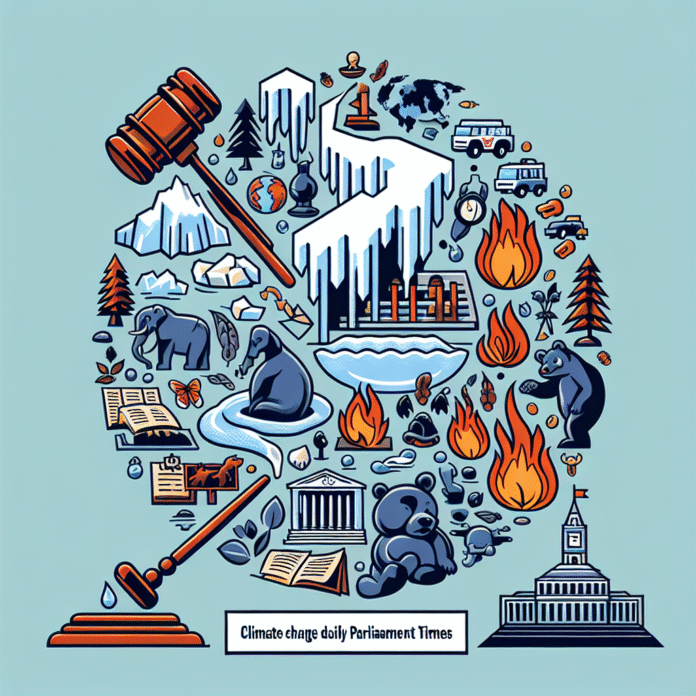Climate Change Updates from Parliament
“`html
Understanding Climate Change
Climate change refers to significant alterations in global temperatures and weather patterns over extended periods. While climate change is a natural phenomenon, human activities, particularly the burning of fossil fuels, deforestation, and industrial processes, have accelerated these changes, leading to unprecedented environmental impacts.
The Science Behind Climate Change
The primary driver of recent climate change is the increase in greenhouse gases (GHGs) in the atmosphere, such as carbon dioxide (CO2), methane (CH4), and nitrous oxide (N2O). These gases trap heat from the sun, leading to a phenomenon known as the greenhouse effect. This effect is essential for maintaining the Earth’s temperature; however, excessive GHG emissions have intensified it, resulting in global warming.
Consequences of Climate Change
The effects of climate change are far-reaching and multifaceted. They include:
- Rising Temperatures: Average global temperatures have risen significantly, with the last few decades being among the warmest on record.
- Melting Ice Caps and Glaciers: The polar ice caps and glaciers are melting at an alarming rate, contributing to rising sea levels.
- Sea Level Rise: As sea levels rise, coastal communities face increased flooding and erosion, threatening infrastructure and habitats.
- Extreme Weather Events: Climate change is linked to an increase in the frequency and severity of extreme weather events, such as hurricanes, droughts, and heatwaves.
- Impact on Biodiversity: Many species are struggling to adapt to changing climates, leading to shifts in ecosystems and increased rates of extinction.
Global Efforts to Combat Climate Change
In response to the growing climate crisis, nations around the world are taking action. Key initiatives include:
- The Paris Agreement: Adopted in 2015, this international treaty aims to limit global warming to well below 2 degrees Celsius compared to pre-industrial levels, with efforts to limit the increase to 1.5 degrees Celsius.
- Renewable Energy Transition: Many countries are investing in renewable energy sources, such as solar and wind power, to reduce dependence on fossil fuels.
- Reforestation and Conservation: Initiatives aimed at protecting and restoring forests are crucial for absorbing CO2 and preserving biodiversity.
- Climate Adaptation Strategies: Communities are developing strategies to adapt to the impacts of climate change, including improved infrastructure and disaster preparedness plans.
Individual Actions to Mitigate Climate Change
Everyone can contribute to the fight against climate change through individual actions, such as:
- Reducing energy consumption at home by using energy-efficient appliances.
- Minimizing waste by recycling and composting.
- Using sustainable transportation options, like biking, walking, or public transit.
- Supporting policies and initiatives that prioritize sustainability and environmental protection.
A Call to Action
Climate change is one of the most pressing challenges of our time, requiring a coordinated global response. By understanding the science, recognizing the consequences, and taking action, we can work together to mitigate its effects and protect our planet for future generations.
“`
